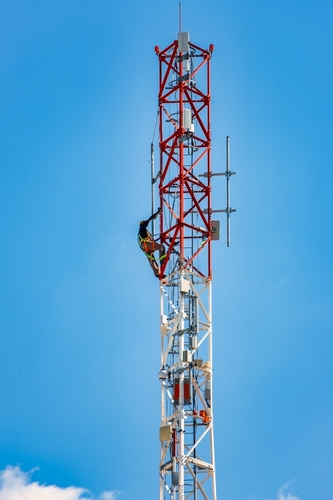Vodafone and 3UK Merger: What Could This Mean for UK Users of 5G FWA?

On the 31st of May 2025,Vodafone UK and CK Hutchison Group (the parent to Three) officially announced the completion of their merger to become VodafoneThree, making it the largest mobile operator in the UK. Five years after initially being announced, the long-awaited merger had finally been provided the stamp of approval in December 2024 by the CMA, the UK’s Competition and Markets Authority, and as of last month Max Taylor,Chief Executive at VodafoneThree confirmed it’s completion.
At UK Connect, we specialise in delivering advanced wireless connectivity solutions tailored for hard-to-reach and challenging environments, particularly within the UK construction sector.As such, news of this merger came with significant excitement, opportunity and some uncertainty.
Increased Investment in 5G Standalone Infrastructure
5G was launched in the UK back in 2019, and it came with huge expectation. The excitement around speeds being up to“100 times faster”, network slicing and ultra-low latency made headlines. However,the reality has been a vast 5G NSA (Non-Standalone) deployment, with carriers relying on the use of existing 4G LTE cores and anchors, limiting upload performance and latency.
The merger of Vodafone and Three plans to change that. The combined business has committed to invest £11 billion over 10years, including £1.3 billion in Year 1 alone, to accelerate a nationwide 5GStandalone (SA) network rollout. Their goal is to cover over 99% of the UK population by 2034.
For 5G Fixed Wireless Access (FWA) users,where traditional broadband isn’t viable and fast deployment is critical, this shift to 5G SA offers several key advantages:
- Higher Speeds and Capacity: SA removes 4G dependencies, unlocking consistent download speeds of 300 – 800Mbps, often exceeding Fibre in short-term deployment, crucial for data-heavy tasks.
- Ultra-Low Latency: Latency as low as 5–10ms makes 5G FWA more effective for real-time sensitive applications like video calls, and VoIP.
- Greater Reliability and Consistency: Network slicing allows VodafoneThree to allocate dedicated bandwidth for specific use cases, improving uptime and performance stability during peak times.
- Future-Proofed Connectivity: The SA core is built for long-term innovation, supporting edge computing, faster upgrades, and more intelligent network management – all of which benefit FWA users.
In short, SA rollout could help FWA match the speed, consistency, and flexibility businesses need – especially on sites where connectivity can’t wait for Fibre.
Improved Network Coverage and Capacity Sharing
One of the most immediate and obvious benefits of the Vodafone and Three merger is the combined network infrastructure, which will help close coverage gaps and expand the reach of 5G across the UK. In the short term, VodafoneThree plans to activate cross-network roaming, enabling devices to use either network’s existing towers – an upgrade expected to improve service quality for up to 22.5 million premises almost instantly.
For managed service providers like UK Connect, this consolidation means:
1) More Consistent Speeds Across Sites: Merged spectrum portfolios and reduced tower duplication help reduce congestion, particularly in high-demand areas like cities or large infrastructure projects.
2) Faster Rollouts in New Locations: Fewer duplicated deployments and more shared assets could lead to quicker setup times when deploying FWA on new or mobile sites.
3) Better Rural Reach: Vodafone and Three’s complementary footprint may close coverage gaps on remote sites, where FWA is often the only feasible option.
Is it all positive?
While the VodafoneThree merger brings bold promises of faster, broader, and more reliable 5G FWA, this is not without challenges and risks.
· Market Consolidation Could Limit Choice: With VodafoneThree now the UK’s largest mobile operator, there’s concern that less competition could eventually impact pricing, innovation, and customer service.Although Ofcom and the CMA imposed certain conditions, critics argue that long-term market pressure may decline, potentially affecting affordability or flexibility.
· Infrastructure Integration is Complex: Merging two large mobile networks is technically and operationally complex. Issues like site overlap, spectrum reallocation, and core network integration can take years to resolve. This integration may cause localised instability or inconsistent performance during the transition period.
· Uneven Feature Access: Not all areas will benefit from 5G SA immediately. Sites in remote or fringe areas may see delayed access to the upgraded infrastructure, requiring fallback solutions or hybrid WAN solutions.
· Equipment Compatibility and Upgrades: To fully benefit from new capabilities like network slicing, 5G routers and CPEs may require firmware updates, or full hardware refreshes, impacting budgets.
As a neutral managed service provider, UK Connect continues to work across all major UK networks, ensuring the best available signal and performance are delivered, regardless of MNO (Major Network Operator).
With a £11 billion investment plan and a long-term commitment to nationwide 5G Standalone (SA) coverage, the VodafoneThree merger has the potential to be a major leap forward for 5G FWA. Improved speeds, broader SA coverage, and better infrastructure coordination could help drive faster deployments, more stable site networks, and reduced setup delays. For construction environments where fibre is unavailable or impractical, 5G FWA is often the only viable connectivity solution. Improvements in coverage, spectrum availability, and network slicing could offer more consistent service levels, especially on temporary or fast-moving sites. At UK Connect, our focus remains on delivering best-in-class FWA solutions, built on multi-network resilience, robust SLAs, and rapid deployment expertise.
"The merger will create a new force in UK mobile, transform the country’s digital infrastructure and propel the UK to the forefront of European connectivity."





